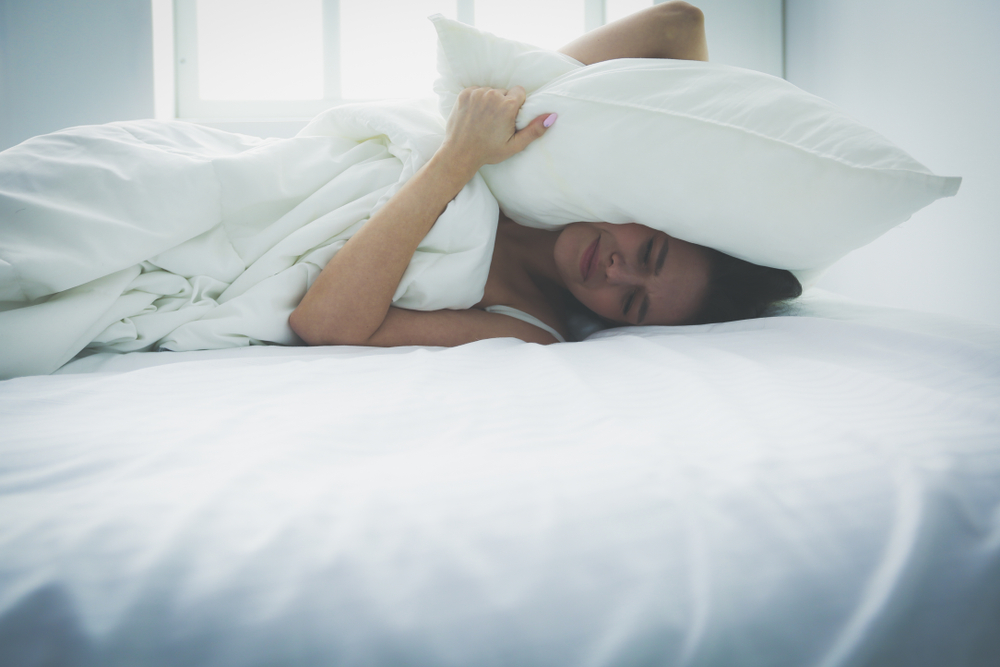Sleepy's use independent contractors for delivery services to our customers and during this time we want to support these small business owners and our customers to ensure safety for all. This may mean some interruptions to our normal delivery service and Free Old Mattress Removal which will be based on advice obtained from the Australian Government and the precautionary measures our delivery contractors determine necessary. If you are purchasing in one of our Sleepy’s showrooms or online, our staff will confirm the current status and keep you updated until your order has been delivered. If you are unable to accept the delivery due to illness or quarantine, you can arrange an alternative delivery time with the store. We are committed to continuing Sleepy’s amazing customer experience from the start of your mattress selection through to post purchase, delivery and beyond.
Read More
Why Do I Twitch When I Sleep?
Read More
Why Do I Twitch When I Sleep?
January 29th, 2021
Estimated reading time: 3 minutes, 27 seconds. Contains 692 words
Many of us experience strange phenomenon in the state between awake and asleep. One moment, you may be dozing off to sleep, and suddenly, your body lurches awake with a violent jerk, leaving you wide awake once again.
This sensation is known as a hypnic jerk, a hypnagogic jerk, a sleep jerk or a sleep start. A hypnic jerk may occur spontaneously, but they can also be caused by external stimuli including light and sound. They are quite common, but not all hypnic jerks will cause you to wake up – in fact, twitching in your sleep without waking up means that the sleep jerk is not quite strong enough and it is passing without you recalling.
Symptoms
It may surprise you to hear, but hypnic jerks are not a form of sleep disorder. Between 60 and 70 percent of people experience them. If you are asking “why do I twitch in my sleep?” with a feeling of anxiety, rest assured that twitching is not a sign of a disease.
If you have ever experienced a hypnagogic jerk before, it likely would have been accompanied by any number of the following:
- Jerk or jolt of muscle or body part
- A sensation of falling
- A dream that ends in a jump, fall or fright
- Sensory flash
- Rapid heartbeat
- Sweating
The only reason you need to worry about hypnic jerks is when they are interrupting your sleep often enough to have a significantly negative impact on your sleep. More often than not, you will settle back into sleep almost immediately after a sleep start.
People also tend to ask, “why do guys twitch in their sleep?” – the reason for this is that hypnic jerks are known to occur in men more frequently than in women.
Causes And Theories
Scientists attempting to answer the question “why do I twitch in my sleep?” do not yet have a 100% definitive answer when it comes to hypnic jerks. There are a number of theories being floated around, but more research is required to find the root of the cause.
One theory is that external stimuli cause hypnic jerks. Both light and sound may be a trigger, as they both stimulate the brain. Light causes the brain to be more alert, which is why we naturally wake when the sun rises, while sound can activate our flight or fight mechanism.
Other scientists believe stress and anxious thoughts may contribute to hypnic jerks, since these can keep your brain active and make it difficult for your muscles to relax before sleep. When this happens, your brain may intermittently send our false warning signals, causing you to jump awake. Sleep deprivation can also include the likelihood of sleep jerks, as can caffeine and fatigue.
Hypnic jerks may also simply be a natural part of the body’s transition from alertness to sleep, occurring whenever nerves “misfire” as you fall asleep. Lastly, sleep jerks may have developed in humans thanks to our primate ancestors, who were jerked awake to force them to change their sleeping positions so that they did not fall out of trees.
Solutions
While sleep jerks do not require medical treatment, there are things you can do if they are bothering you. You may not be able to rid yourself of hypnic jerks entirely, but there are ways to prevent them from happening.
Avoid Stimulants
While a morning cup of coffee is unlikely to cause sleep interruptions, drinking coffee late at night or partaking of alcohol or tobacco too close to bedtime can increase the likelihood of hypnic jerks. Try to decrease your consumption of these, and stop all together well before you go to bed.
Exercise Earlier
Exercising before noon may decrease the occurrence of sleep jerks come bedtime. If you still wish to exercise later in the day, perhaps after work, try low-impact exercise such as yoga.
Develop A Good Pre-Sleep Routine
Learn to fall asleep and stay asleep by creating a good sleep routine and schedule. Before going to bed, you may want to reduce screen time, practice meditation, and have dinner earlier.
Getting a good night’s sleep can be difficult, even without hypnic jerks to keep you awake. Find out how to promote good sleep hygiene, or take our personalised Mattress Match test to discover the best foundation for sleep.


